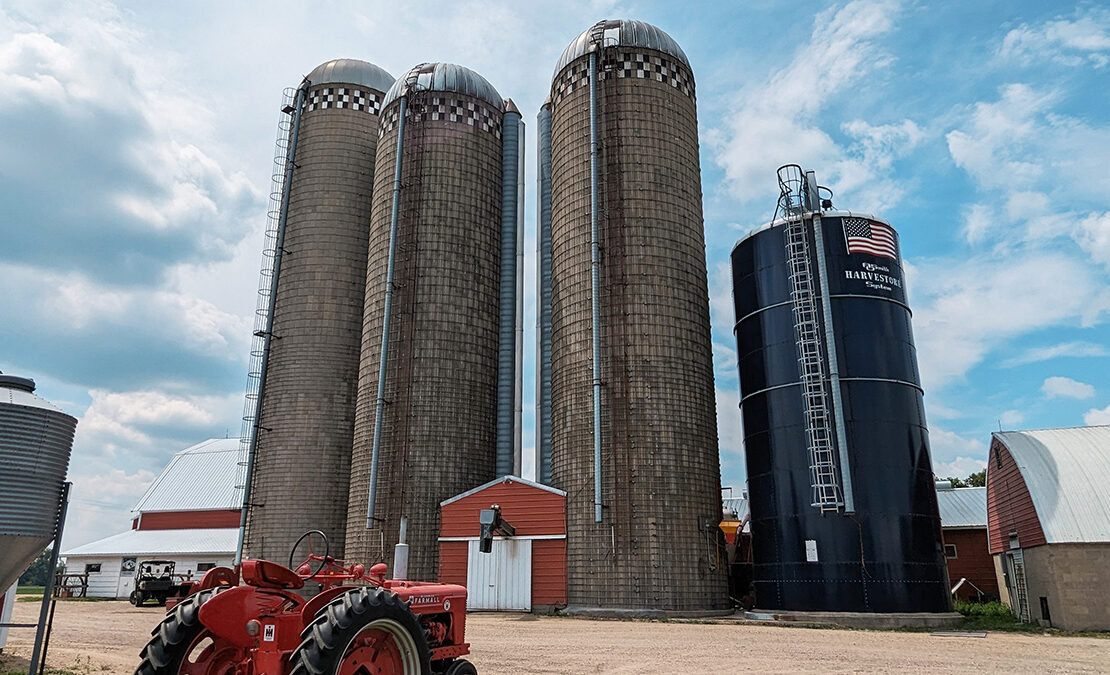Report: Conservation practices benefit the environment and local farmer’s bottom line

STEARNS COUNTY, Minnesota— A recent return-on-investment study of dairy operations in central Minnesota found that profitability and environmental stewardship are complimentary. The study analyzed 10 farms and found that on average the farms demonstrated improved environmental and financial outcomes compared to benchmarks.
The data collected shows that corn silage and alfalfa crops on the participating farms had higher net returns compared to benchmark farms, which are the median Stearns County farms for each of the analyzed crops in 2022. Participating alfalfa and corn grain fields also had more than 40% less soil erosion than benchmark fields, resulting in reduced runoff and improved local water quality.
The farms in the study are implementing practices that help build the health of the soil, such as cover crops, which are crops planted primarily to keep soil covered and hold nutrients, and low- or no-tilling, which involves minimal soil disturbance.
“Conservation fits all three legs of sustainability,” said Jerry Jennissen, a farmer whose operation, Jer-Lindy Farm, was analyzed for the report. “First, it’s profitable. It’s also socially acceptable and environmentally responsible. I wanted to make the land better, and I think most farmers do.”
The return-on-investment study is conducted by the Headwaters Agriculture Sustainability Partnership, a collaboration of nonprofits, farmers, and agribusinesses working on solutions that benefit the environment, the economic viability of farmers, and the vitality of rural communities.
While a growing number of farmers are adopting conservation practices, they are still only on a small fraction of U.S. agricultural acres. The purpose of the return-on-investment study is to demonstrate that these practices can improve farm profitability and environmental outcomes in central Minnesota. The study will continue to provide insights as more farmers are analyzed in the coming years.
“These farmers know there are benefits to these practices, and this report demonstrates the business case on how these practices can support a farmer’s bottom line,” said Steve Schultz, senior partnership manager for Environmental Initiative. “We hope the findings can help other farmers see how these practices can improve local air and water quality and encourage them to take the next step in their operations.”
###
About Environmental Initiative
Environmental Initiative is a nonprofit organization based in Minneapolis that catalyzes collaboration across perspectives, power, and systems for social equity and environmental health. The Headwaters Agriculture Sustainability Partnership is a cross-sector partnership administered by Environmental Initiative. Members and funders include AgCentric; AgCountry Farm Credit Services; Centra Sota Cooperative; Compeer Financial; Edge Dairy; Houston Engineering Inc.; Integrated Crop Management Services, LLC; Midwest Dairy; Minnesota Agricultural Water Quality Certification Program; Minnesota Department of Agriculture; Minnesota Milk; Minnesota Rural Water Association; The Nature Conservancy; Nature Energy; SLP, LLC; Stearns County Soil and Water Conservation District; Steve Schlangen; Syngenta; University of Minnesota Extension; and USDA Natural Resource Conservation Services.